On the morning of May 31, the workshop "Management of plastic waste in the agricultural sector, current situation and solutions" was held to promote effective solutions in reducing plastic waste in the agricultural sector, focusing on pilot models that have been and are being implemented in practice, solving local problems in all 3 areas: Cultivation, livestock and aquaculture.
The Agriculture and Rural Development sector is one of the country's important economic sectors. According to the Vietnam Agricultural Sector Summary Report 2022 of the Ministry of Agriculture and Rural Development ( MARD ), the total export turnover of the sector reached over 53.22 billion USD with a significant increase in the fields of agriculture, forestry, livestock and fisheries.
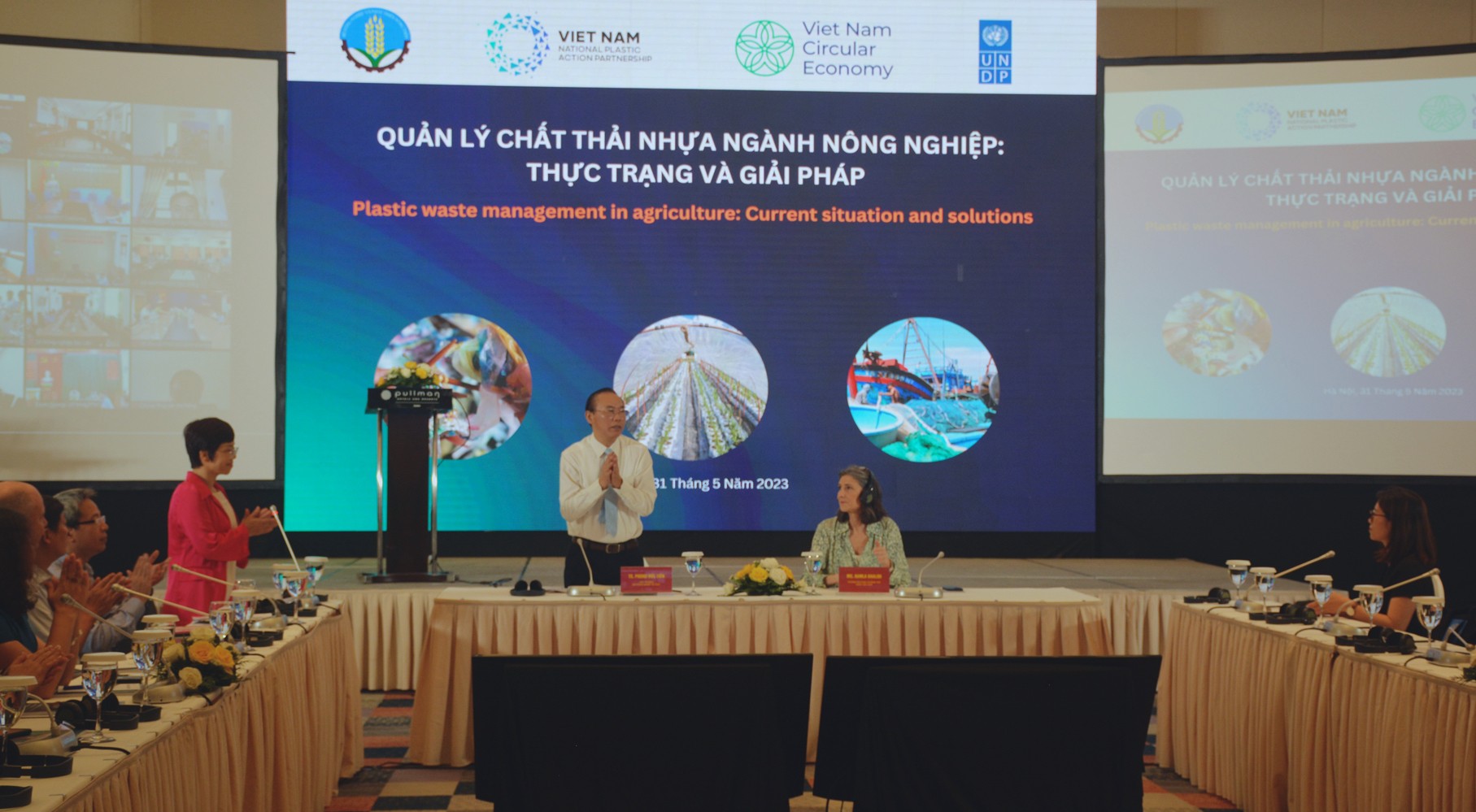
Workshop “Management of plastic waste in agriculture, current situation and solutions”.
Agricultural production activities play an essential role in ensuring national food security, stabilizing life and social security. However, this activity also puts great pressure on the environment, including the problem of plastic waste in the industry.
According to data from the 2021 national environmental status report, the total amount of solid waste generated from crop cultivation activities is approximately 661.5 thousand tons/year (including 550 thousand tons of nylon, 77.49 thousand tons of fertilizer packaging and 33.98 thousand tons of pesticide packaging).
Solid waste generated from cattle, buffalo, pig and poultry farming activities is about 67.93 million tons; 77 thousand tons of plastic waste from food packaging. Aquaculture activities generate about 880 thousand tons of sludge, 273 thousand tons of waste from food packaging, veterinary medicine packaging and other solids.
Faced with the above reality, Deputy Minister of Agriculture and Rural Development Phung Duc Tien raised the question: "What do we need to do to both develop production and protect the environment, moving towards an ecological, circular, responsible, modern, efficient and sustainable agricultural economy ?"
According to the Deputy Minister, solutions for sustainable agricultural development have been proposed in the Strategy for Sustainable Agricultural and Rural Development for the 2021-2030 period, with a vision to 2050; which emphasizes that agriculture, farmers, and rural areas have a strategic position in the cause of industrialization and modernization.
Responsible, modern, efficient and sustainable agricultural production; developing ecological, organic, circular, low-carbon, environmentally friendly and climate change-adaptive agriculture.
Therefore, Deputy Minister Phung Duc Tien expressed his hope that central and local management agencies, organizations and individuals would discuss and share experiences to promote solutions and actions to systematically reduce plastic waste in the agricultural sector.
At the same time, mobilize resources from all parties to create a strong transformation in production activities, towards developing responsible, modern, efficient and sustainable agricultural production; a circular agricultural economy, environmentally friendly and adaptable to climate change.
The event presented a number of solutions being implemented in some localities, helping to reduce plastic waste, increase collection, classification, reuse and recycling of waste in agricultural production activities.
Specifically, the model of collecting plastic waste on fishing boats, connected to a material recovery facility in Quy Nhon (Binh Dinh), is part of the project "Replicating the community model of managing household waste and plastic in 5 cities" sponsored by UNDP Vietnam and the Norwegian Embassy in Vietnam.
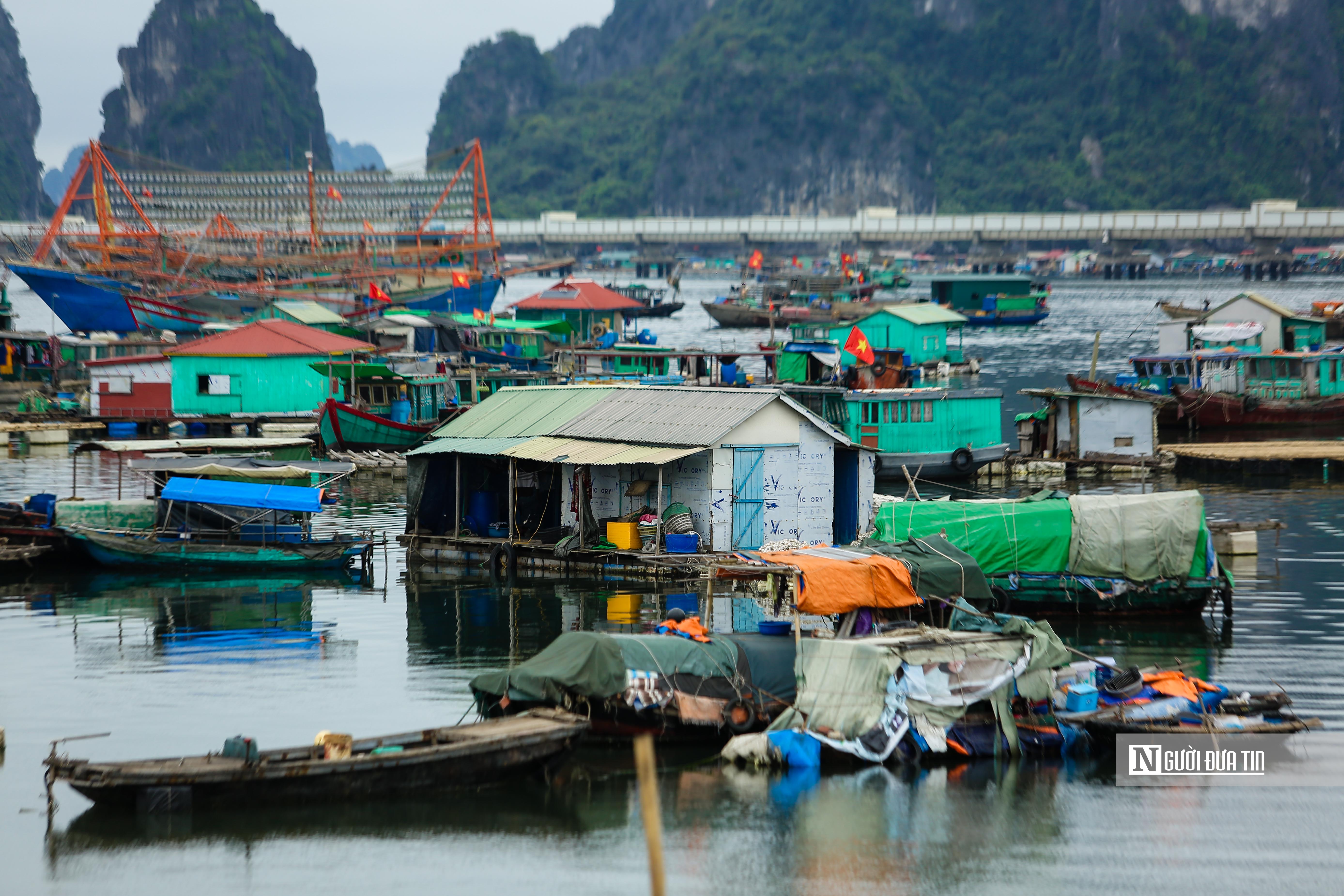
Collecting plastic waste on fishing boats and connecting with material recovery facilities helps to utilize fishermen as members of the marine waste collection team.
The activity of collecting plastic waste on fishing boats, connecting with material recovery facilities, helps to utilize the fishermen as members of the marine waste collection team, reducing the amount of floating plastic waste, generating income as well as increasing the economic value of recyclable waste sources.
To successfully implement the national plan on plastic waste reduction in the agriculture and fisheries sector, UNDP Resident Representative in Vietnam, Ms. Ramla Khalidi, proposed four key solutions: “One, accelerate effective solutions towards a national plan. Two, build a baseline database on plastic pollution and plastic waste, as well as a feasible monitoring system from the national to provincial levels to assess the progress of plastic waste reduction in the agricultural sector.
Third, promote effective collection and recycling models, use alternative packaging materials to replace single-use plastics in the field. And finally, educate farmers and agricultural stakeholders on the environmental impact of plastics, as well as the availability of alternatives . ”
Source



![[Photo] General Secretary To Lam attends the conference to review 10 years of implementing Directive No. 05 of the Politburo and evaluate the results of implementing Regulation No. 09 of the Central Public Security Party Committee.](https://vphoto.vietnam.vn/thumb/1200x675/vietnam/resource/IMAGE/2025/5/19/2f44458c655a4403acd7929dbbfa5039)
![[Photo] President Luong Cuong presents the 40-year Party membership badge to Chief of the Office of the President Le Khanh Hai](https://vphoto.vietnam.vn/thumb/1200x675/vietnam/resource/IMAGE/2025/5/19/a22bc55dd7bf4a2ab7e3958d32282c15)
![[Photo] Close-up of Tang Long Bridge, Thu Duc City after repairing rutting](https://vphoto.vietnam.vn/thumb/1200x675/vietnam/resource/IMAGE/2025/5/19/086736d9d11f43198f5bd8d78df9bd41)

![[Photo] Panorama of the Opening Ceremony of the 43rd Nhan Dan Newspaper National Table Tennis Championship](https://vphoto.vietnam.vn/thumb/1200x675/vietnam/resource/IMAGE/2025/5/19/5e22950340b941309280448198bcf1d9)
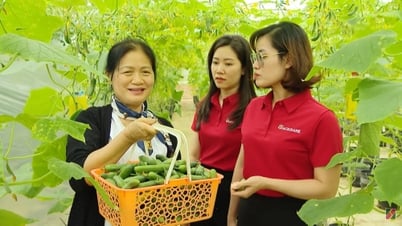










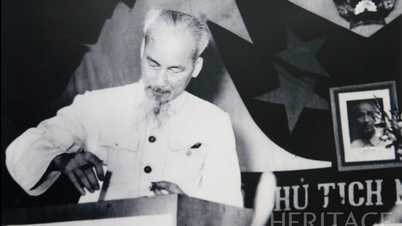



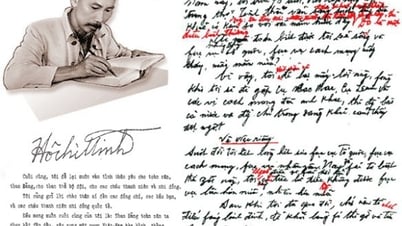




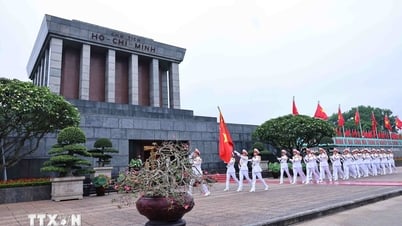











![[Photo] Prime Minister Pham Minh Chinh inspects the progress of the National Exhibition and Fair Center project](https://vphoto.vietnam.vn/thumb/1200x675/vietnam/resource/IMAGE/2025/5/19/35189ac8807140d897ad2b7d2583fbae)













































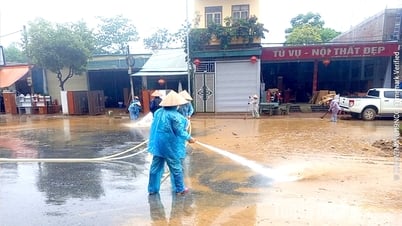

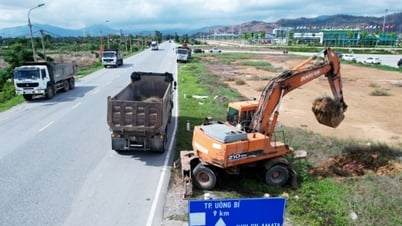

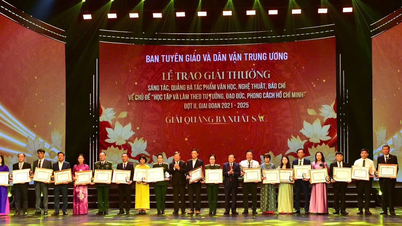







![[VIDEO] - Enhancing the value of Quang Nam OCOP products through trade connections](https://vphoto.vietnam.vn/thumb/402x226/vietnam/resource/IMAGE/2025/5/17/5be5b5fff1f14914986fad159097a677)



Comment (0)